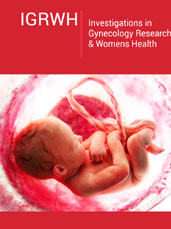- Submissions

Full Text
Investigations in Gynecology Research & Womens Health
Gynecology as a Necessity of Healthy Life Today:A Sociological Appraisal
Mohammad Taghi Sheykhi*
Professor Emeritus of Sociology, Iran
*Corresponding author: Mohammad Taghi Sheykhi, Department of Sociology, Iran
Submission: November 07, 2020;Published: January 12, 2021

ISSN: 2577-2015 Volume4 Issue1
Mini Review
Sociology appraising various dimensions of human life, will have a close look at the dependency of women on gynecology at current times. Many factors such as longer life expectancy, late marriage, urbanization, industrialization, curiosity for further rejuvenation and many more, have contributed to further tendency toward gynecology by women in modern time. Previously, and when science of gynecology had not advanced, women would easily die in young age. Women are exposed to more illnesses and health disorders as compared to men. Women at any age are anxious to keep on their beauty and body shape. Such a value highly attaches them to gynecologists. Modern gynecology originating in Western countries, gradually entered the developing countries with special reference to the richer ones. In modern time, gynecology has become a sort of tourism (Medical Tourism), in that, the well to do women go to other countries for special treatments. Sometimes and in many areas, specialties of gynecology and obstetrics overlap. However, gynecology may have a large impact on quality of life. One of the functions of gynecologists is to treat infertility especially among women. In human’s infertility is the inability to become pregnant after one year of intercourse without any contraception involving male/female partner. There are many causes of infertility including some that medical intervention can treat [1].
A research in 1997 shows that about 5% of all normal couples worldwide have an unresolved problem with infertility [2]. Infertility may have wide psychological effects. Partners may become more anxious to conceive but get disappointed of the dysfunction [3]. Gynecology does a great job to treat people/couples with infertility as in many cultures such an inability to conceive bears a stigma. Sociologically speaking, gynecology is something taboo and a stigma; the therapy may be on a woman by a male doctor. Many developing countries still resist not to practice it. But conservative countries try to disregard the taboo. Many countries have in the past few decades improved their gynecological education by admitting more females in the field at the university level. Surveys also indicate that many women are uncomfortable with male gerontologists [4]. So, many gynecologists do not have good markets and a lot of clients. Gynecology has in many societies the responsibility of consulting, but in many cases, it is narrowly and physically practiced. As found out, in the United States, it has been reported that 80 percent of students choosing residency in gynecology are currently females [5]. Turkey, due to patient preference to be seen by another female, there are now few male gynecologists working in the field [6,7]. Based on the data in Table 1, life expectancy among women is increasing in an unprecedented manner. Similarly, some parts of the world have surplus children born as compared to those who die annually. Such an image of population increases leads to increasing migration in later years. So, gynecologists can take positive steps in this regard-guiding woman to plan their children.
Table 1: Some socio-demographic indicators of various parts of the world 2020.

References
- Makar RS, Thomas LT (2002) The evaluation of infertility. Am J Clin Pathol 117 Suppl: S95-S103.
- Himmel W, Ittner E, Kochen MM, Michelmann HW, Hinney B, et al. (1997) Management of involuntary childlessness. British Journal of General Practice 47(415): 111-118.
- Barrat CLR, Cooke ID (1993) Donor insemination. Cambridge University Press, UK, p. 231.
- Hall JA, Debra LR (2002) Do patients talk differently to male and female physicians? A meta-analytic review. Patient Educ Couns 48(3): 217-224.
- (2014) Enhancing the representation of women as senior leaders in obstetrics and gynecology.
- (2014) Male gynecologist in Turkey.
- (2020) World population data sheet. Population reference Bureau, Washington DC, USA.
© 2020 Mohammad Taghi Sheykhi. This is an open access article distributed under the terms of the Creative Commons Attribution License , which permits unrestricted use, distribution, and build upon your work non-commercially.
 a Creative Commons Attribution 4.0 International License. Based on a work at www.crimsonpublishers.com.
Best viewed in
a Creative Commons Attribution 4.0 International License. Based on a work at www.crimsonpublishers.com.
Best viewed in 







.jpg)






























 Editorial Board Registrations
Editorial Board Registrations Submit your Article
Submit your Article Refer a Friend
Refer a Friend Advertise With Us
Advertise With Us
.jpg)






.jpg)














.bmp)
.jpg)
.png)
.jpg)










.jpg)






.png)

.png)



.png)






